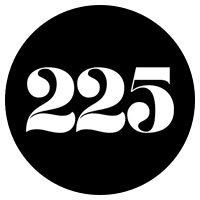Painful stories, comforting words
Editor’s Note: Advocate writer Laurie Smith Anderson writes about local families’ struggles with disease, death and recovery. In 2005 doctors diagnosed her with cancer. For more than a year she has shared her experiences in a revealing weekly column called The Patient Person. We asked her daughter, Sarah, to share her thoughts on her mom’s very public battle with cancer.
My mother hears me when I don’t talk. She can read my moods almost as if she were in the same room—not on a phone 900 miles away. When I first moved to Chicago, she always knew when I was getting on the El because I immediately donned my train voice—tinny and tight like a too-sharp guitar string. She would tell me she’d call back later, knowing I hated trying to whisper over the racket of the train, and hated even more the idea of some stranger overhearing my conversation.
She hears when I get distracted, and she somehow knows the culprit. She’ll say goodbye so I can “get dinner on the table,” and I’ll swear she can smell the roast in the oven.
|
|
I am illiterate when it comes to reading my mother. Since she was diagnosed with late-stage colon cancer in 2005, I have struggled to understand her. We talk every day, and she is honest with me if her latest chemo has left her weak or tired, but her words are always propped up by her need to protect me. She tells me she’s been fighting nausea all day, but her tone is the strong, safe lullaby she sang to me as a child, telling me that everything’s all right.
I generally allow myself to paint a rosy picture about her outlook, and I focus on enjoying the time I have with her now. Knowing that she spends most days at home or in doctors’ offices, I try to give her a glimpse of my life in a bustling city, regaling her with stories of my trials with public transportation or describing a dinner at the tasty Vietnamese restaurant in my neighborhood.
But there are sleepless nights when I force myself to face the reality that my mother’s cancer is treatable but incurable. On the phone, I try to reconcile the strong voice with the weakened woman I see when we visit.
When I was home for Christmas, I was nearly able to touch my shoulder blades when I wrapped my arms around her. Prescription bottles had overrun the kitchen counter basket that once only held Tylenol and a multivitamin, and a stool was fixed between the stove and the sink, ensuring that she had a place to rest if her household tasks proved too exhausting.
There’s only a hint of her struggle when I call her on my way home from work. I’ve recently noticed that she clears her throat when my dad hands her the phone; she’s summoning her strength—for my benefit.
Still, we don’t seem to talk about it. The best way I’ve found to understand what my mother is going through has been, surprisingly, the same way everyone else has. When she decided to take her story public, through a weekly column in The Advocate People section, my family rallied around her, knowing the writing would be therapeutic. I never imagined how much it would help me as well.
Last January she sent a draft of her first column to a few family members for our thoughts. I saw in her words the rosy picture I’d been painting. She praised co-workers, family members and her doctors for their support. Her words were heartfelt, certainly, but they were too comforting. Cancer is not comforting.
My dad told her—nicely, I’m sure—that she needed to find a more honest voice. A week later she sent a revised copy that nearly floored me with its vulnerability. She expressed her anger and dismay at being diagnosed with this disease at such a young age, after a lifetime of paying careful attention to her health.
In the year she has been writing the column, she has dealt with pins-and-needles topics like death and depression, things I know she hesitates to discuss with my brother and me. She has made her struggle an open book, realizing that focusing on the ups without mentioning the downs would be a disservice to her readers.
Those readers sometimes thank my mom for helping them understand a loved one fighting cancer. I owe her the same thanks. In her column every Friday, even from 900 miles away, I finally find what I need to read my mother.
|
|
|

